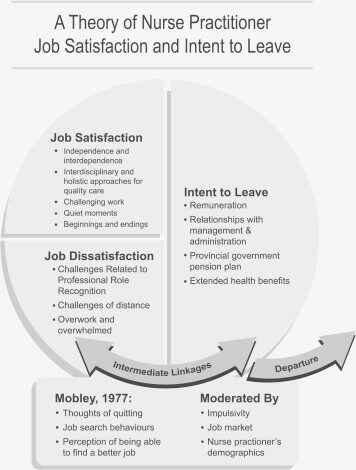How can we retain our nurse practitioners?
To leave or not to leave? That is the question facing many nurse practitioners in Canada
Nurse practitioners play a critical role in the Canadian health-care system. However, job satisfaction, or lack thereof, creates retention challenges that can create risks for the entire sector.
Dr. Jennifer-Lynn Fournier, assistant professor in the Master of Nursing – Nurse Practitioner program, has found that factors such as workloads, distance to worksite, fair wages, benefits, and relationships influence the likelihood of nurse practitioners resigning from their jobs.
Understanding why nurse practitioners leave can help health-care providers improve attraction and retention strategies.
“What we know as a health-care system and as an industry is that it’s much more costly to recruit and replace someone—particularly in a one-clinician place,” said Fournier.
She explained that in many rural settings where there’s nobody to train new employees, it is much more cost-effective to retain who you’ve attracted.
Fournier joined CTV Morning Live Regina to chat about how to retain nurses who are feeling burnt out and planning to leave their roles.
“What we know as a health-care system and as an industry is that it's much more costly to recruit and replace someone—particularly in a one-clinician place.”
– Dr. Jennifer-Lynn Fournier, assistant professor in the Master of Nursing – Nurse Practitioner program at AU
Nurse practitioners fill a critical role
Nurse practitioners are registered nurses with additional education and experience. This allows them to independently treat and diagnose illnesses, order and interpret tests, prescribe medications, and more.
After working as a nurse practitioner and human resources manager in urban and rural settings, Fournier noticed an increase in nurse practitioners intending to leave their practices. She wanted to know what they were looking for in jobs, how they react and interact with their environments, and how employers could add value and retention by putting them in jobs that suit them best.
Fournier’s research was done before COVID-19, however, the findings are even more relevant post-pandemic, which created massive strains on the health-care system.
Nurse practitioners are the fastest-growing role in the nursing profession, but like other health-care roles, nursing has seen a large spike in job vacancies during the pandemic.
“My research talks about caseload and clinic administration…which kind of took a hit with all the chaos around COVID.”
Fournier and a team of researchers from Laurentian University in Sudbury, Ont. worked together on an in-depth study focusing on nurse practitioners’ intent to leave. Their findings will help provide recommendations to inform employers about how to retain primary health-care providers.

Applying findings to human resources
Fournier acknowledged that while there are a number of studies that focus on nurse practitioner job satisfaction, very few have focused on their intent to leave.
“The intention was to inform nurse practitioners themselves of what kinds of things in an employment place might lead them to stay or to leave,” she explained.
“When they’re evaluating jobs, they can at least have an awareness of some of the things that have typically been barriers, deal breakers, or things that have led to departures.”
Fournier explained that this research will help provide valuable information all the way from career planning on the system’s end.
“When they're evaluating jobs, they can at least have an awareness of some of the things that have typically been barriers, deal breakers, or things that have led to departures”
What makes people leave?
Once nurse practitioners have expressed intent to leave, there’s a high likelihood that they’re halfway out the door and their feelings have been festering for a period of time, Fournier explained.
However, her research found that actively working to retain and compensate nurse practitioners prior to experiencing workplace dissatisfaction increases their likelihood to stay.
Her research indicates that there are a number of other factors that influence intent to leave such as pay and benefits, relationships with managers and administrators, location, team dynamics, and more.
Finding the job that fits “just right”
Fournier advised that during their education, nurse practitioners should seek out a wide variety of clinical experiences so that they can evaluate how they feel in various types of practice settings.
“When I counsel our students and people getting ready to graduate, I tell them to look at how they feel in the various places and not to necessarily follow the newest or trendiest model of care that all their classmates are trying to get a job at,” she said.
Fournier compared job hunting to finding the right pair of shoes—not all are going to fit well.
“Having this kind of work to refer to is really helpful to show [nurse practitioners] and employers what kind of things you might think about or consider when you’re weighing one job offer against another, or when you’re trying to figure out where you want to put effort into finding a job,” she said.
Learn more about nursing programs at AU.
